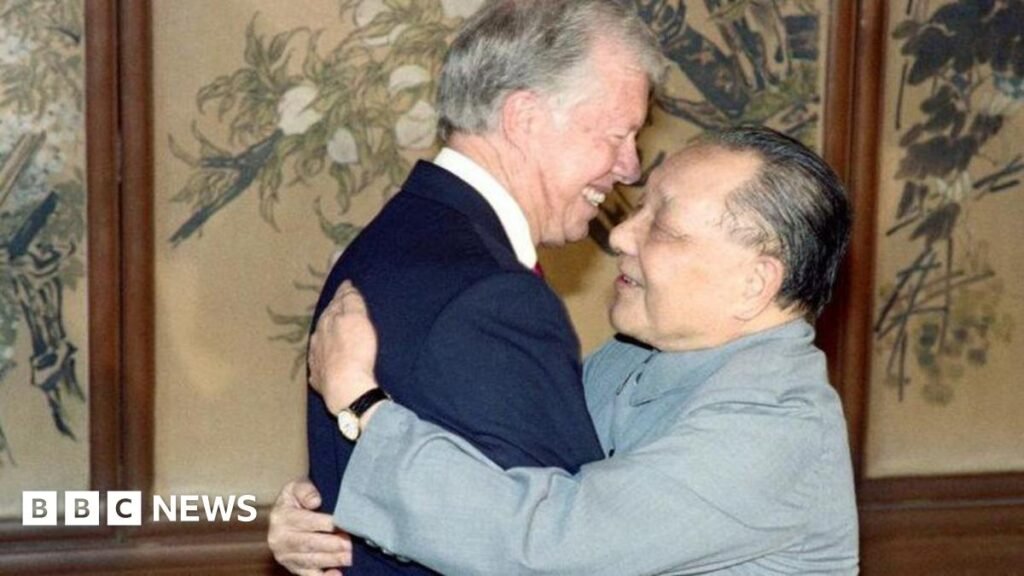This was to be his last visit. As US-China relations have strengthened, so have Carter’s ties to the Chinese leadership, especially since Xi Jinping came to power.
Ahead of his 2014 visit, top government officials instructed universities not to sponsor his events, prompting a last-minute scramble to change the venue. – noted Carter, external.
A state dinner hosted for him at the Great Hall of the People in Beijing was sparsely attended, Mr. Schell recalled. Notably, it was hosted by then-Vice President Li Yuanchao, while Xi was said to be hosting another high-ranking guest elsewhere in the complex.
“He didn’t even come to tip his hat to Carter. That really showed the state of the relationship,” Mr Schell said. “Carter was very angry. Two of his assistants told me that he even wanted to leave early because he felt disrespected.’
The Carter Center’s China operations were eventually wound down, and the website they maintained to document the village elections was taken down. No clear explanation was given at the time, but Dr. Liu attributed it to China’s growing suspicion of foreign organizations after the 2010 Arab Spring.
While Carter has said little about the scorn publicly, it would have felt no less acute given the length of time he has spent advocating for engagement.
It also raised questions about whether his human rights approach to China was ultimately justified – he described it as “patience” but others criticized it as soft-pedaling.
Carter often “went to great lengths … not to stick a finger in China’s eye on the issue of human rights,” Mr. Schell noted. “He was bracing himself, even when he wasn’t there, because the Carter Center had a real stake in the country.”

